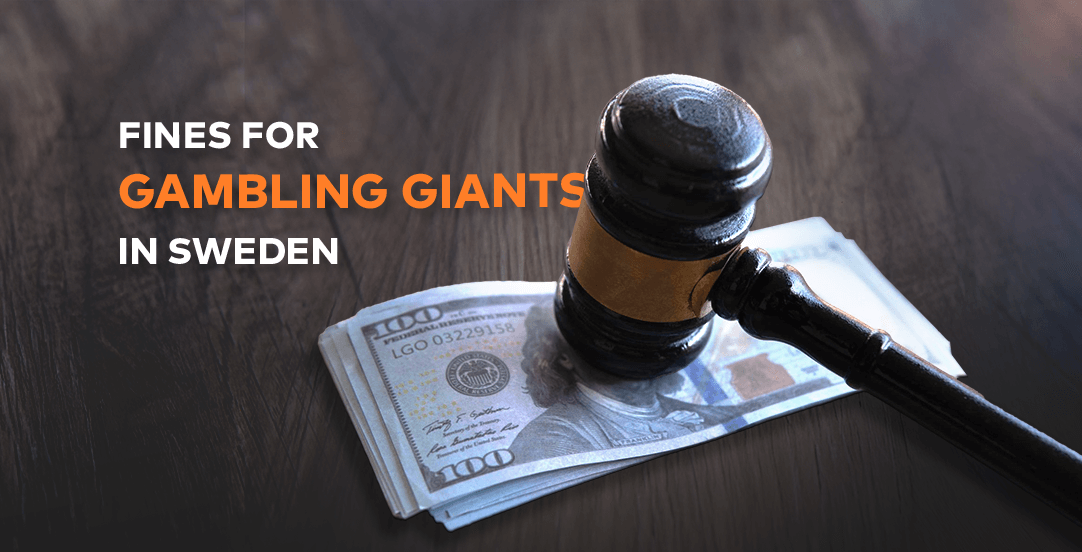Swedish Gambling Authority penalties reshape AML standards for Betsson, Snabbare, and PokerStars

June 2025 brought a pivotal moment in the Nordic iGaming landscape. The Swedish Gambling Authority penalties for Betsson, Snabbare, and PokerStars have made headlines not just for their total sum—SEK 19 million—but for what they signal about an industry at a crossroads between regulatory rigor and operational realities. This landmark enforcement action is more than a set of fines; it’s a litmus test for compliance practices and risk management frameworks across Europe and beyond.
Understanding the penalties: scope and rationale
The regulator, Spelinspektionen, delivered administrative fines to three major operators, tallying SEK 7 million for PokerStars owner TSG Interactive PLC, SEK 6.5 million for Betsson Nordic Ltd, and SEK 5.5 million for Snabbare Ltd. Each company also received formal warnings. The common thread across these cases was insufficient anti-money laundering (AML) controls—with all three operators failing to collect adequate data on the legitimacy of players’ funds and to intervene decisively in high-risk scenarios.
These shortcomings surfaced during supervisory reviews focused on transactions from 2023. At the heart of the findings was the failure to verify the source of player deposits, particularly when amounts sharply outpaced customers’ reported incomes. In several high-profile examples, young players deposited figures far beyond what could reasonably be explained by salary alone. Rather than treating these situations with heightened scrutiny, the operators often rationalized large deposits as recirculated winnings—a practice the SGA found lacking in rigor.
Real-world operator failures: critical case studies
The devil is always in the details of enforcement actions. The SGA’s investigation into Betsson Nordic drew from in-depth reviews of 10 high-deposit younger customers, revealing some especially alarming inconsistencies:
- One 20-year-old deposited over SEK 133,000 in a month, spread across 181 separate transactions, with Betsson attributing nearly all of it to prior gaming winnings, thereby underestimating risk,
- Another 23-year-old put in SEK 271,699 within four months. The investigation flagged that a review alert was actively removed to “avoid disturbing the customer,”
- The most striking case involved deposits nearing half a million SEK from a player whose declared annual income was just SEK 310,000, yet Betsson gave the customer only a low-to-medium risk rating.
Betsson’s default to previous winnings as justification, while arguably defensible in the high-churn world of gaming, proved insufficient for Sweden’s risk-based approach to AML.
Snabbare’s issues mirrored Betsson’s, but with even larger sums and risk amplifiers such as customers who self-excluded but continued to deposit:
- One customer deposited SEK 3.24 million between January and August 2023 over 267 occasions, repeatedly triggering alerts that were dismissed since the player had been “in a winning position,”
- Another customer, despite self-excluding, deposited SEK 3.04 million in a single year, with generated alarms ignored,
- A player continued dropping money after self-exclusion and only had their income checked after 1.28 million SEK was already deposited.
This overreliance on automation and backward-looking logic left key vulnerabilities exposed. Snabbare has since pledged to revise their approach, particularly by lowering alert thresholds for players under 24 and narrowing the acceptable window for re-depositing winnings.
Lastly, PokerStars—through TSG Interactive—was called out for weak enhanced due diligence. Some customers deposited with multiple cards over months without ever triggering an alert or being subject to due diligence reviews. TSG argued for the normalcy of professional players reinvesting, but acknowledged the need for improved verifications and new age-based risk protocols.
What these penalties mean for the Swedish market
This wave of regulatory action arrives as Spelinspektionen intensifies its scrutiny of gaming practices. The SEK 19 million in fines for Betsson, Snabbare, and PokerStars follows other hefty sanctions this spring, including SEK 10 million for Kindred’s Spooniker subsidiary and SEK 12 million for Videoslots. The regulator’s message is unequivocal: AML controls must be both proactive and proportionate, with special attention on younger demographics and outsized deposit patterns.
The specificity of enforcement—using individual case studies from operator databases—illustrates not just broad lapses but systematic failures. Relying on recycled winnings as a blanket rationale or delaying enhanced diligence until after multiple alarms go unanswered does not satisfy Sweden’s high bar for AML compliance.
The new compliance playbook for operators
The immediate industry response has been to shore up documented processes, especially related to customer risk assessment and the tracing of funds. Operators are now:
- Lowering AML alert thresholds for younger or newly registered players,
- Implementing instant triggers for large deposits or complex deposit patterns,
- Requiring more rigorous documentation on income for high-stakes or high-volume customers.
This evolution isn’t just about avoiding fines—it’s about winning public trust in an era where regulatory and social scrutiny is only set to increase.
Broader implications for European and global iGaming
While the specifics of these penalties pertain to Sweden, the reverberations go far wider. Many European regulators, from the UK Gambling Commission to Malta’s MGA, take cues from high-profile enforcement actions. Increasingly, operators must design compliance programs that meet or exceed the highest market standards. For multi-market giants like Betsson and Flutter, operational consistency is crucial.
The incident also serves as a warning that in an era of hefty fines, reputational and commercial damage can be just as consequential as monetary penalties. Enhanced monitoring, continuous improvement, and a willingness to question established processes are now table stakes for sustainable success.
What comes next for Swedish iGaming and AML
Sweden’s thorough approach to AML in the gambling sector, illustrated by these latest penalties, may become a blueprint for broader EU reforms. As virtual gaming evolves and player behaviors grow more complex, regulators and operators alike will need to keep pace—not just with advanced technology, but with adaptable, risk-based thinking.
For the customer, the outcome should be a safer environment, where both the letter and spirit of responsible gaming are upheld at every step.
The story of the Swedish Gambling Authority’s SEK 19 million penalty is not just a regulatory event—it’s a snapshot of an industry learning, innovating, and recalibrating on the fly. As scrutiny intensifies and consumer protections evolve, all eyes remain on Sweden and the lessons it provides for global iGaming compliance.




















